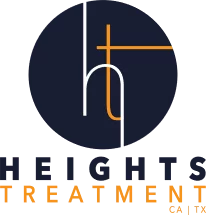Evidence-Based Treatment for Sex Addiction
Overcome Problematic and Compulsive Sexual Behavior at Our Sex Addiction Treatment Center
When most people think of addictive behaviors, they think of alcohol or drugs. Process addictions, such as sex and gambling, are also addictive and compulsive behaviors that can have negative consequences.
A healthy sexual appetite and interest is a good thing, but it becomes an addiction or compulsion when someone seeks intimacy outside of their relationships, engages in risky sexual behavior, and cannot stop with willpower alone.
Though society often makes light of sexual addictions, they can impact emotional and physical intimacy, devastate relationships, and increase the risk of physical and mental health conditions.
Interventions are available. There is a better existence within reach.
What Is Sex Addiction?
Sex addiction, also known as hypersexuality, sexual compulsivity, or compulsive sexual behavior, is a type of addiction that involves intense focus on sexual fantasies, urges, or activities that can’t be controlled. Like other addictions, sexual addiction causes distress in healthy, relationships, careers, and other aspects of life.
Though sex addiction involves activities that can be a normal part of a healthy sex life, such as pornography, masturbation, cybersex, phone sex, fetishes, and multiple partners, when it becomes a compulsion you have no control over, it’s considered a sexual addiction. This may include all sexual thoughts and activities or specific ones like compulsive masturbation or porn addiction.
Treatment Options for Sex & Pornography Addiction
Sexual addiction may be treated with a variety of psychotherapy and group therapy.
Psychotherapy is a broad treatment option that includes several therapeutic modalities. Cognitive behavioral therapy (CBT) and dialectical behavior therapy (DBT), two types of individual psychotherapy, work on identifying and correcting unhelpful patterns of behavior and finding new, healthier coping mechanisms to reduce the impulse to have sex or engage in risky sexual behavior.
Interpersonal therapy and group therapy in a controlled setting, guided by a mental health professional, can be helpful for developing a strong support network of people experiencing similar struggles.
Patients may benefit from a self-help support group modeled after the 12-Step program of Alcoholics Anonymous. As applied to sex addiction, these groups include Sex Anonymous, Sexaholics Anonymous, Sex and Love Addicts Anonymous, and Sexual Compulsives Anonymous.
At Heights Treatment, we believe that having a foundation of support is a key component of the recovery process. Individual therapy is important to understand the source of the sexual impulses, but working with a recovery group and family are essential to move forward and overcome the disorder.
Our sex addiction rehab includes evidence-based modalities as part of a tailored treatment plan that considers your unique struggles and history. If you or a loved one is ready to take the next step, we’re here to help.
What Causes Sex Addiction?
Hypersexuality is not well understood by the psychiatric community, but it may stem from underlying causes like:
An Imbalance of Mood Chemicals in the Brain
Overproduction or excessively high levels of certain chemicals in the brain can lead to an increase in sexual desire and behavior. This is typically caused by neurotransmitters like dopamine, serotonin, and norepinephrine.
Brain Damage Related to Sexual Behavior
Conditions that affect the areas of the brain that control sexual behavior can influence a sex addiction, such as epilepsy or dementia. Damage to the frontal lobe, prefrontal cortex, and amygdala may contribute to hypersexuality.
Substance Abuse or Medications
Some substances cause hypersexuality just during use or release inhibitions, making casual sexual encounters more likely. This may include cocaine, amphetamines, and alcohol.
In other cases, medication may have hypersexuality as a side effect, such as levodopa, a medication used to treat Parkinson’s disease.
Parental Relationships
Family dynamics can contribute to the symptoms of hypersexuality, though no cause-and-effect link has been definitively established. For example, people who grow up in rigid or religious families where sex was “taboo” are more likely to demonstrate compulsive sexual behaviors.
Trauma
Sexual compulsions can be a symptom of trauma, particularly with childhood and adolescent sexual abuse. These people often display hypersexual behaviors later in life.

Recovery Programs for Sex Addiction
Our sex addiction treatment programs at Heights Treatment include leading modalities like CBT, DBT, group therapy, support groups, and interpersonal therapy.
Our Sex Addiction treatment options include:
Individualized Intensive Program (IIP)
IIP is ideal for patients transitioning from a higher level of treatment or an inpatient program. This program offers evidence-based modalities and an integrative approach, but patients still have the flexibility to balance their recovery with responsibilities at work, home, or school.

Partial Hospitalization Program (PHP)
A PHP is an intensive level of outpatient care that’s ideal for patients transitioning from a residential treatment program or IIP. Patients still have the flexibility to tend to work, home, or school but benefit from a structured environment for treatment and care in our welcoming rehab center in Houston.

Intensive Outpatient Program (IOP)
Our IOP is a good fit for patients who have completed IIP or inpatient treatment but may need more rigorous care than an outpatient program. This program can help patients who have taken the first step toward recovery on their own and need more long-term support, treatment, and accountability.

Outpatient Program (OP)
Mental health treatment programs provide evidence-based behavioral health therapy and psychiatry. A positive community of peer support, family therapy sessions, and a compassionate staff with an individualized, strategic plan. Patients learn skills like positive awareness, coping skills, interpersonal effectiveness, and mindfulness in regular therapy sessions.

Evidence-Based Therapies for Treating Sexual Addiction
Our outpatient treatment programs for mental health and substance use disorder focus on evidence-based modalities that empower the whole person. Everything we do at Heights Treatment is backed by scientific data and studies, so you can trust that we have the leading-edge treatment plan for mental health conditions.
Each program is tailored to the individual and their unique medical and mental health history, challenges, and treatment goals. Our behavioral health and addiction treatment center uses a combination of individual and group therapy to create a comprehensive approach to substance abuse and mental health disorder treatment.
Our therapies include:

FAQs About Sex Addiction & Sex Addiction Treatment
Below are answers to some of the most commonly asked questions about sex addiction and sex addiction therapy:
What is a Process Addiction?
Process addiction, also called a behavioral addiction, is an overwhelming impulse to engage in a certain behavior despite negative consequences. Engaging in the behavior leads to an elevated mood followed by a sense of guilt or shame when it’s over.
Process addictions may include sexual activity, gambling, shopping, pornography, internet use, exercise, work, and eating disorders. Like addictions to substances, process addictions harm physical and emotional health, damage relationships, and may cause legal or financial issues.
Is Sex Addiction Common?
The statistics on sex addiction are difficult to pinpoint because this type of addiction wasn’t taken seriously for a long time. About 6% to 8% of US adults are classified as addicted to sex, which may be up to 24 million people.
Sex addiction may be increasing due to easier access to sexual materials like pornography or apps devoted to sexual topics or casual encounters. Though it’s often attributed to men, sex addiction can also affect women.
Is Compulsive Masturbating a Form of Sex Addiction?
Compulsive masturbation is a type of sexual addiction that’s characterized by a lack of impulse control. Similar to obsessive compulsive disorder, compulsive masturbation is driven by repetitious thoughts that drive someone to engage in sexual acts, like masturbation, to get a release. Fortunately, it can be treated just like other sexual compulsions.
Is Porn Addiction a Type of Sex Addiction?
Porn addiction is a type of sex addiction, but it has some distinctive differences. While both can have a negative effect on someone’s work, social life, and interpersonal relationships without an ability to stop, the fundamental difference between them is that porn addiction involves a screen instead of another person. In this way, it more closely mimics a video game addiction. It can be treated effectively with the same methods used for sex addiction.
What are the Risks of Untreated Sex Addiction?
Sex addiction may seem harmless, but it can have serious consequences if left untreated. The behaviors involved in hypersexuality can interfere with interpersonal relationships, particularly with couples, and may lead to low self-esteem. The time involved in seeking out sexual activity and engaging in it could affect professional performance and finances as well. There are also risks to physical and mental health, including sexually transmitted infections (STIs), depression, sleep and appetite changes, and an inability to experience pleasure.
How Can You Support Loved Ones You Have Hurt Through Sex Addiction?
Sex addiction can be a painful betrayal for partners and spouses. Once you seek treatment and commit to change, it’s easier to rebuild the relationship with them knowing the pain won’t just continue and increase. This takes time, patience, and work, but you can move forward with better understanding, boundaries, support, and forgiveness.
You Don’t Have to Live With Sex Addiction
If you or a loved one are struggling with hypersexuality or compulsive sexual behavior, you don’t have to do it alone. Contact us today to start the healing process.
Contact Us

